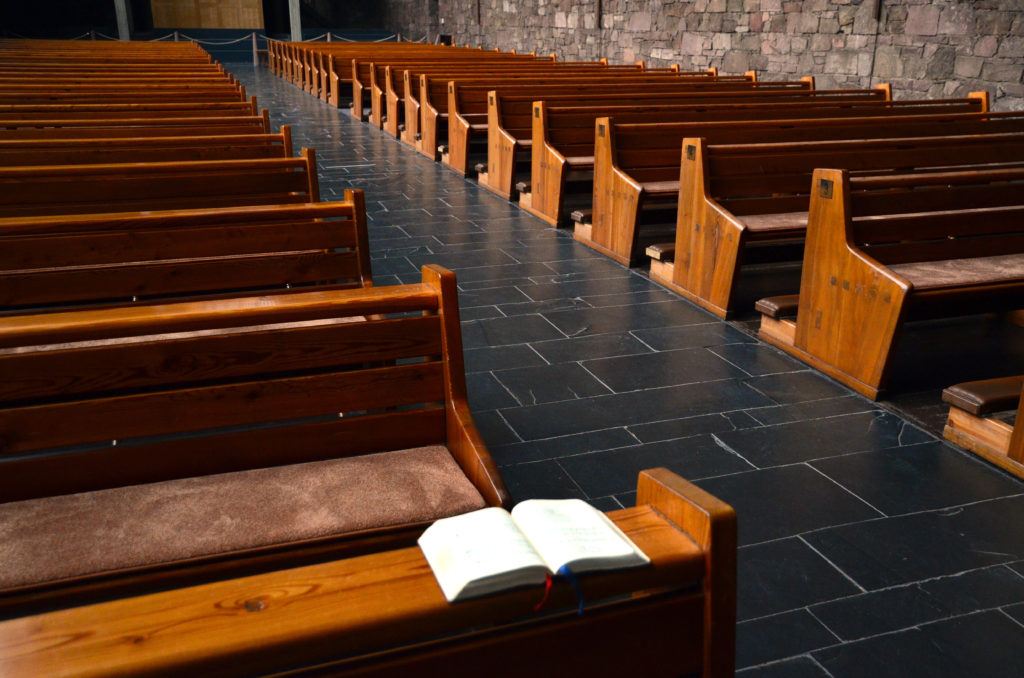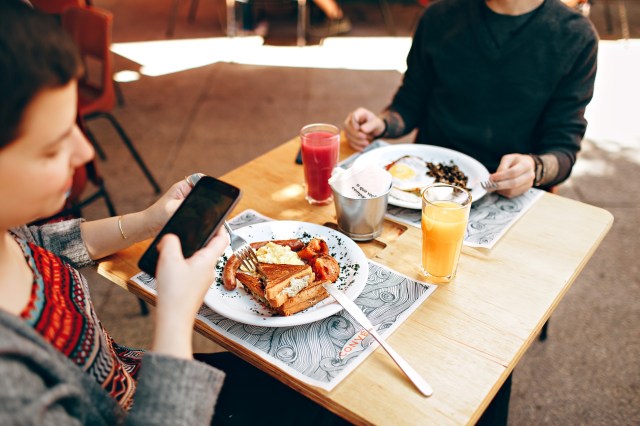Phones at the dinner table are becoming an accepted part of life, but this is no good thing says Katie Harrison (Credit Image: Helena Lopes for Pexels)

What ever happened to slowing down? For the last couple of decades, we’ve bemoaned the speed of life and promised to spend more time savouring the moment. But here we are, still busy, still bombarded with messages, still running late all the time.
Or are we?
A ComRes poll commissioned by the UK’s Chief Rabbi for ShabbatUK found that 52% of Brits say they sit down with family for a meal every day. A further 24% eat with loved ones at least once a week. Those meals, though, aren’t always the peaceful moments we imagine. Most of us (61%) have the television turned on or will answer the phone if it rings mid-meal.
And yet quality time is something we worry about. In the US, 56% of working mothers and 50% of working dads say they find it difficult to find the right balance. The UK Chief Rabbi’s research found that nearly three in five people wish they could spend more time with loved ones without being interrupted by technology.
Most religions, of course, have long traditions of reflection and rest; rhythms that benefit those around us as much as ourselves. There’s a Hadith – a teaching in the Muslim tradition – that talks about slowing down as a tool in anger management: If anyone of you becomes angry and is standing, let him sit down so his anger will go away; if it does not go away, let him lie down.
Taking a break can be an opportunity to put daily routines into an eternal perspective.
“Our daily prayers are part of pausing,” says Farah Elahi, whose Runnymede Trust report on Islamophobia was published last week. “We wash our hands before praying and think about what our hands have been doing that day; we wash our mouths and think about the words we have spoken. It helps us to go into prayer being mindful of the moment we are in and the way we have been treating people.”
It’s an account of religious practice that isn’t often heard. From the outside, rituals of prayer and holy days can appear restrictive and oppressive. “If England has not been invaded since 1066, it is because foreigners dread having to spend a Sunday there,” or so a French novel from the 1950s tells it.

But times change. In the US, Sunday is by far the most likely day for people to spend in religious activities; people are even more likely to spend the time with pets or grooming themselves. In Britain, a long and painful process of introducing Sunday trading laws– shops in England and Wales had been flouting the prohibition for years, while Scotland had no restrictions – resulted in limited opening hours on the Sabbath. And online, Sunday is the busiest fashion shopping day.
Practising a holy day of rest seems to work best for people who customise tradition to express their deeply held values. “We do the Friday dinner every week,” says Olivia Marks-Woldman, who runs the Holocaust Memorial Day Trust. “We make the challah bread ourselves, which is fun. Blessing our children, saying Shabbat Shalom, it’s an important moment for us. My children feel blessed by me every week.”
“It’s about not getting swept up in life,” says Runnymede’s Elahi. It’s about turning down the television, and it’s about letting the phone ring instead of answering it. “Let’s not make this life more important than the next one.”










Join the discussion
Join like minded readers that support our journalism by becoming a paid subscriber
To join the discussion in the comments, become a paid subscriber.
Join like minded readers that support our journalism, read unlimited articles and enjoy other subscriber-only benefits.
Subscribe